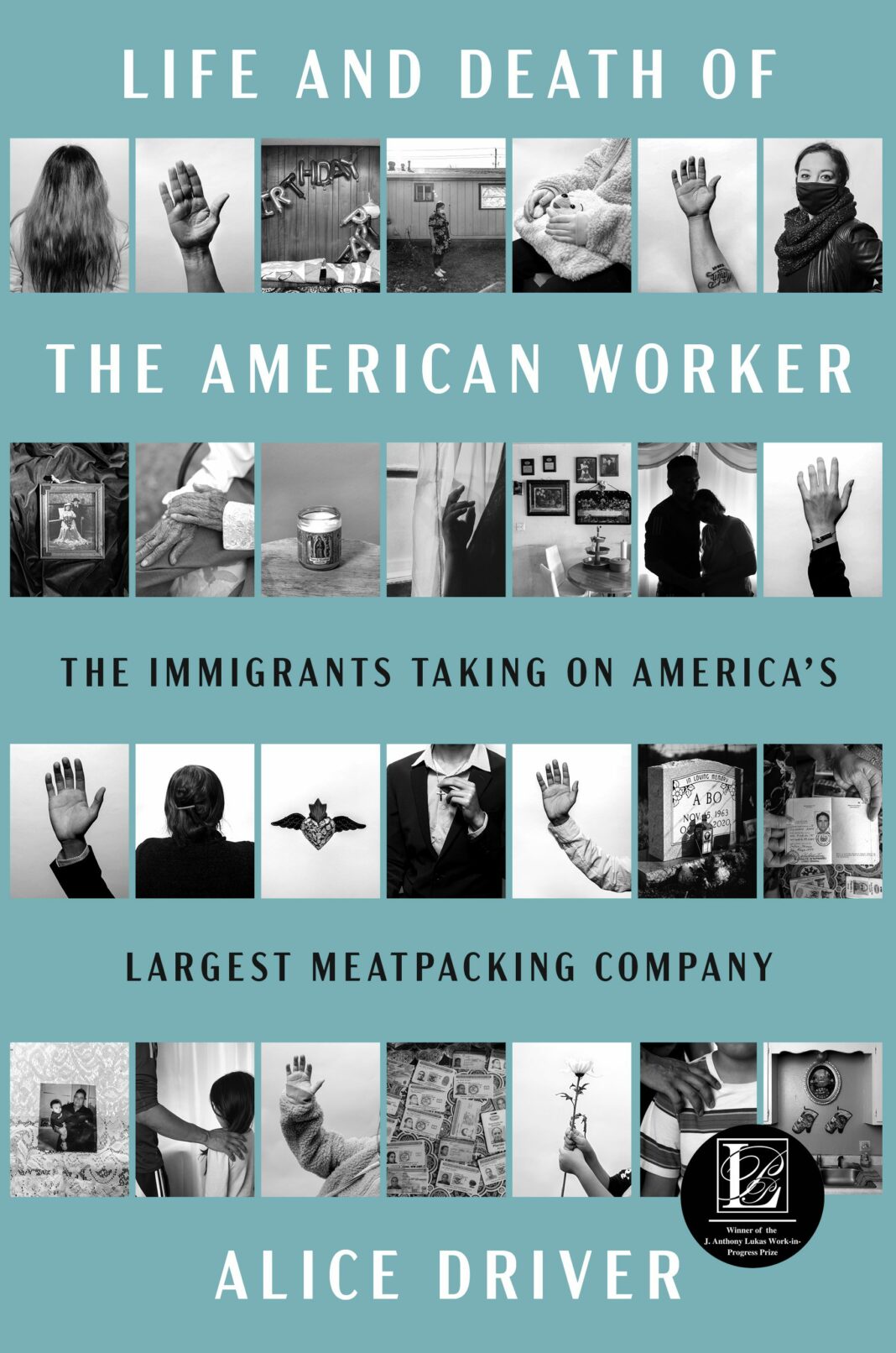
- c.2024, One Signal Publishers
- $28.99
- 272 pages
Whatever pays the bills.
That’s what you do, day in and day out, looking ahead for the weekend or even just your 15-minute break. Most days, you like your job. Most days, you don’t mind getting out of bed and going to work for that paycheck, the benefits and yes, the time off at days’ end. Though, as in the new book “Life and Death of the American Worker” by Alice Driver, you do expect to get it all safely.
For many years, Angelina Pacheco cut chicken in her sleep.
She and her husband, Plácido, worked at Tyson Foods, the country’s largest meatpacking company at Tyson’s facility in Springdale, Arkansas, where Angelina was assigned to remove wings from chicken carcasses. Because of the violence of her work and the repetitiveness of it, her hands “moved against her will, gnarled as they were.”
Still, she was lucky. Angelina was working somewhere else when there was a chemical leak at the Tyson plant in 2011. Her husband, however, was a victim.
Alice Driver knew of the accident, and it lingered in her mind.
Over some years, Driver met many Tyson workers and gained their trust to investigate allegations of workplace accidents, unreported safety issues and ignored worker health matters.
Employees — nearly 30% Hispanic, nearly 27% Black — told Driver that physical injury was very common inside the plant, but employees were forbidden to seek outside medical care. Bathroom breaks were often denied. Speaking to the media about anything was strictly forbidden.
Tyson jobs were generally the only above-minimum-wage employment an illiterate or non-English-speaker could find, and nobody could afford to be fired: many workers were supporting family in other countries.
Still, Driver knew that some Tyson workers were getting mighty fed up and some had broken company rules to explore legal and governmental help.
And then Covid hit…
No doubt, you’ve heard the stories. You might even remember the scant news coverage of the chemical spill in 2011. “Life and Death of the American Worker” fills in a lot of blanks and lets readers in on the status of immigrant workers today.
Take a guess about it, though, and you’d probably be right.
There’s really no better time than now to read this book, although you might imagine that in this political climate we live in, it could be controversial. And yet, it’s hard to ignore what author Alice Driver learned in years spent gaining the trust of immigrants who worked at Tyson while she investigated their working conditions. It’s equally hard to overlook what Driver says about the valid American need for these workers and the jobs they do.
Readers who enjoy the conveniences of store-bought food will gain a new appreciation of the people who process it, but also beware that this book is unsettling and could make your blood boil. If you’re looking for arguments or answers, you might find them here. If you’re ready for activism, “Life and Death of the American Worker” offers a good payoff.




